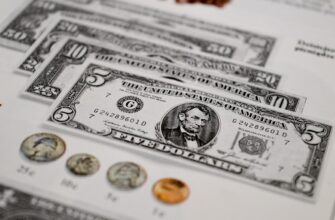- Introduction: Why Buying Bitcoin Safely Matters
- Why Safety is Non-Negotiable When Buying Bitcoin
- Step-by-Step Guide to Buying Bitcoin Safely
- How to Choose a Secure Bitcoin Exchange or Platform
- Securing Your Bitcoin After Purchase: Wallet Best Practices
- Common Bitcoin Scams and How to Avoid Them
- FAQ: Your Bitcoin Safety Questions Answered
- Is Bitcoin safe to buy?
- What’s the safest way to store Bitcoin?
- Can I buy Bitcoin anonymously?
- How do I avoid Bitcoin scams?
- What should I do if I suspect fraud?
- Are Bitcoin transactions reversible?
- How much Bitcoin should I buy first?
- Conclusion: Empower Your Bitcoin Journey with Safety First
Introduction: Why Buying Bitcoin Safely Matters
Bitcoin offers exciting opportunities for investment and financial freedom, but its digital nature makes security paramount. With rising scams, hacks, and phishing attacks, learning how to safely buy Bitcoin isn’t just smart—it’s essential to protect your hard-earned money. This guide walks you through every step, from choosing a trusted platform to storing your Bitcoin securely. By following these best practices, you’ll minimize risks and build confidence in your crypto journey. Let’s dive in!
Why Safety is Non-Negotiable When Buying Bitcoin
Bitcoin transactions are irreversible and pseudonymous, meaning mistakes or thefts can’t be easily undone. Common risks include:
- Exchange hacks: Platforms can be breached, exposing user funds.
- Phishing scams: Fake websites or emails trick you into revealing login details.
- Malware: Viruses can steal your Bitcoin from insecure devices.
- Pump-and-dump schemes: Fraudsters inflate prices before cashing out, leaving you with losses.
Prioritizing safety ensures you avoid these pitfalls and enjoy Bitcoin’s benefits without sleepless nights.
Step-by-Step Guide to Buying Bitcoin Safely
Follow this proven process to buy Bitcoin with confidence:
- Choose a reputable exchange: Start with well-known platforms like Coinbase, Kraken, or Binance. Check reviews on sites like Trustpilot and verify they’re regulated in your region.
- Secure your account: Enable two-factor authentication (2FA) using an app like Google Authenticator—never SMS, which is less secure. Create a strong, unique password.
- Verify your identity (KYC): Complete Know Your Customer checks by submitting ID documents. This adds security and complies with laws.
- Fund your account safely: Use bank transfers or credit cards via secure connections (look for HTTPS in the URL). Avoid public Wi-Fi for transactions.
- Place your buy order: Start with a small amount to test the process. Double-check the Bitcoin address before confirming.
- Transfer to a secure wallet: Immediately move your Bitcoin from the exchange to a private wallet—never leave large amounts on exchanges.
This methodical approach reduces exposure to threats at every stage.
How to Choose a Secure Bitcoin Exchange or Platform
Not all exchanges are created equal. Evaluate them based on:
- Reputation and regulation: Opt for platforms with licenses in major jurisdictions (e.g., US, EU) and positive user feedback.
- Security features: Look for cold storage (offline funds), insurance policies, and 2FA enforcement.
- Fees and transparency: Avoid services with hidden charges; clear pricing builds trust.
- User experience: A clean interface with educational resources indicates professionalism.
Top recommendations include Coinbase for beginners (user-friendly) and Kraken for advanced users (robust security).
Securing Your Bitcoin After Purchase: Wallet Best Practices
Once you buy Bitcoin, storing it securely is critical. Use these wallet strategies:
- Hardware wallets: Devices like Ledger or Trezor keep Bitcoin offline, immune to online hacks. Ideal for long-term holdings.
- Software wallets: Apps like Exodus or Electrum are convenient for smaller amounts but require strong device security.
- Backup your seed phrase: Write down the 12-24 word recovery phrase on paper and store it in a safe place—never digitally.
- Regular updates: Keep wallet software and devices patched to fend off vulnerabilities.
Remember: If you control your private keys, you control your Bitcoin. Exchanges don’t offer this security.
Common Bitcoin Scams and How to Avoid Them
Stay vigilant against these frequent threats:
- Phishing attacks: Scammers mimic legitimate sites. Always verify URLs and never click links in unsolicited emails.
- Fake exchanges or wallets: Download apps only from official stores like Google Play or Apple App Store.
- Giveaway scams: Ignore “send Bitcoin to double it” offers—they’re always fraudulent.
- Malware: Use antivirus software and avoid suspicious downloads.
If something seems too good to be true, it probably is. Report scams to authorities like the FTC.
FAQ: Your Bitcoin Safety Questions Answered
Is Bitcoin safe to buy?
Yes, if you use reputable exchanges, enable 2FA, and store Bitcoin in a secure wallet. Always start small to learn the ropes.
What’s the safest way to store Bitcoin?
Hardware wallets are the gold standard for security, as they keep keys offline. Combine this with a physical backup of your seed phrase.
Can I buy Bitcoin anonymously?
Most exchanges require ID verification (KYC) for security and legality. For more privacy, use decentralized exchanges, but they carry higher risks.
How do I avoid Bitcoin scams?
Stick to trusted platforms, double-check addresses, and never share private keys or recovery phrases. Educate yourself on common fraud tactics.
What should I do if I suspect fraud?
Immediately contact the exchange’s support, change your passwords, and report it to agencies like the FBI’s IC3. If funds are stolen, act fast—recovery is rare.
Are Bitcoin transactions reversible?
No, once confirmed on the blockchain, they can’t be undone. Always verify details before sending.
How much Bitcoin should I buy first?
Start with an amount you can afford to lose, like $50–$100, to practice safety steps without major risk.
Conclusion: Empower Your Bitcoin Journey with Safety First
Buying Bitcoin safely boils down to preparation and vigilance. By choosing trusted exchanges, securing your accounts, using hardware wallets, and staying scam-aware, you turn potential risks into manageable steps. Remember, the crypto world rewards the cautious—start small, keep learning, and protect your investments like a pro. Ready to dive in? Take action today with confidence!








